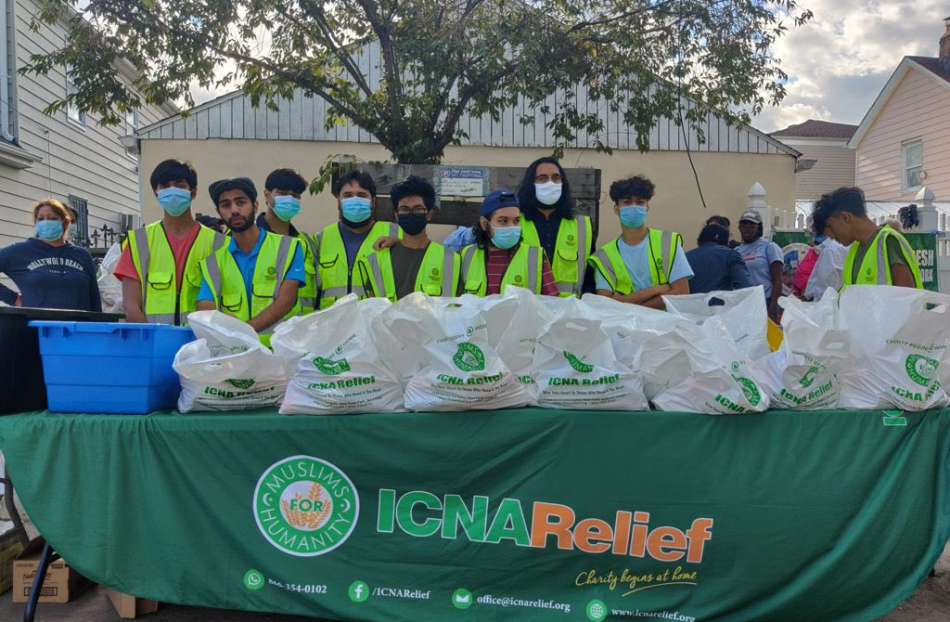
Story by Adeena Syed
As more Afghan refugees come to the city of Philadelphia in the wake of the US military withdrawal from Afghanistan, the Philadelphia chapter of the Council of American Islamic Relations has dedicated itself to providing them with any aid they may need.
Ahmet Selim, CAIR community outreach director, has been on the forefront of these efforts since the moment refugees began arriving in Philadelphia.
“We see our role as essentially on the advocacy side and making sure that services are culturally mindful and that communities that need help are being connected to the services they need,” Selim said.
One organization that has been working alongside CAIR is the Islamic Circle of North America which was formed in 2015 and has provided aid to global refugees coming to Philadelphia for the past six years.

Dana Mohamed, an ICNA Relief staffer, said this wave of refugees coming from Afghanistan is larger than anything they have ever seen before.
“There hasn’t been such a humongous number ever before,” Mohamed said. “So it’s been a struggle getting things organized.”
To help refugees get the legal aid they need as they arrive, both ICNA Relief and CAIR have partnered up with resettlement agencies across the city.
“Because we are a civil rights organization, we don’t currently have legal expertise on immigration,” Selim said. “So, what we essentially have done is that we circulated the things that are immirgation law related to the Office of Immigrant Affairs just as a general resource.”
Refugees have a range of legal needs, and often need to talk to immigration lawyers in order to get the documents and permission needed to pursue jobs and housing that isn’t simply government housing.
The largest of all the resettlement organizations in Philadelphia is the Nationalities Service Center, a national non-profit organization that has been working with refugees since 1921. Adi Altman, manager of welcome and community services in NSC’s Philadelphia office, has personally been working with US government agencies to provide medical and legal aid to the refugees, as well as arrange housing for individuals, families and unaccompanied minors.
According to Altman, there are still around 54,000 Afghans who are waiting to be brought over to the United States as humanitarian parolees.
Altman says that the difference between the parolees and the refugees is that, unlike the refugees who have already received an immigration status in the United States, parolees are people who have been airlifted from Afghanistan and brought over to America without any sort of authorization.
The goal for the NSC is to get these parolees registered as refugees so that they may remain in the country.
In addition to fulfilling their legal needs, all three organizations are committed to meeting the refugee’s religious and cultural needs as well.
Among these cultural and religious needs are food; as the refugees began to come in, CAIR hired halal food vendors to set up shop in the airport so the refugees would have halal meals ready for them upon arrival.
While it may not seem like a big deal, the availability of halal food is important as the vast majority of the refugees are Muslim and require their food to be prepared as required by their religion.
“There is some concern around how the food is being prepared,” Selim said. “You know, if it’s done with proper procedure and also the kind of food and nutrition.”
Having a halal food vendor helps refugees feel more comfortable as they take their first steps into a new city and new country.
Something else that many refugees require upon arrival is clothes.
“In some cases, we’ll have people coming in just the clothes they’re wearing,” Altman said. “And for a while, they had to make do with those clothes for days until various organizations started to make some noise.”
ICNA Relief has been particularly active organizing charity drives for clothes and other supplies that the refugees may need as they settle in America.

Despite having encountered difficulties in the process of getting refugees settled, Mohamed says that the response from people who have donated items for their drives has been “wonderfully overwhelming”.
The NSC is also working in tandem with aforementioned non-profit organizations to help the refugees acclimate to American culture. Staff also provide tips on how to deal with potential cases of abuse and discrimination. The children in particular are susceptible to bullying in schools.
“As much as possible, we do aim to resettle families in communities that are already representative of their culture,” said Altman. “And the school districts have become a lot more tolerant in terms of creating spaces for individuals to feel comfortable and confident.”
Altman also said that the NSC understands that racism and xenophobia are very real things and have a deep impact on the families as they move into their assigned areas.
“We do educate around these issues,” Altman said. “And say ‘Hey, there’s a big secular community around here,’ and we’re gonna show you where the Arab stores are and where the halal stores are. We’re gonna connect you with those resources. At the same time, we’re gonna show that not everywhere is ready to accept you, but that there is absolutely a welcoming environment in Philadelphia for you.”
Please email any questions or concerns about this story to: [email protected].


Be the first to comment